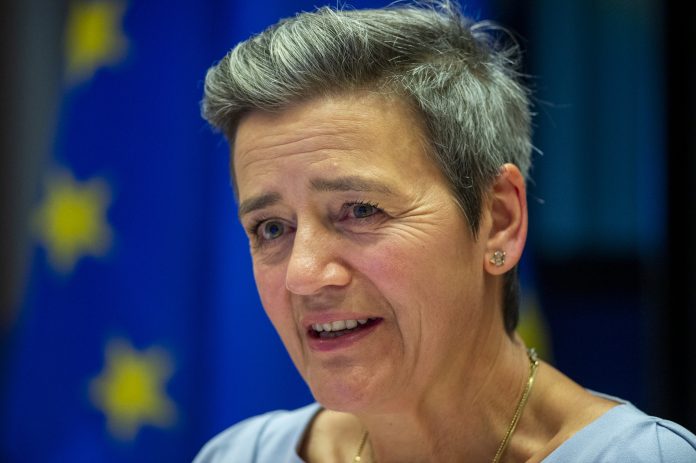The European Commission has thrown its weight behind a Dutch government plan to radically reduce the nation’s nitrogen pollution emissions. On Tuesday, the EU’s executive arm gave its blessing to proposed farm buyout schemes worth nearly 1.5 billion euros.
The controversial plans, which seek to reduce nitrogen deposits, caused mainly by livestock farms, on nature areas designated by the EU as vulnerable, triggered widespread protests by irate farmers in a country recognised as a major producer and exporter of farm products. Last year, according to the Dutch national statistics office, agricultural exports were worth 122.3 billion euros.
The ruling coalition government wants to cut pollutant emissions — nitrogen oxide and ammonia, mostly – by half by the end of the decade. Just how much of that target can be achieved drawing on EU-approved funds, however, remains unclear, although some 3,000 farms are expected to be eligible.
Nitrogen pollution exacerbates climate change and can harm biodiversity, says the UN Environment Programme.
Key to the proposed Dutch strategy is the purchase and ending of work at farms responsible for large-scale nitrogen emissions. First, however, it was necessary to acquire the European Commission’s confirmation that the proposed buyouts do not constitute the kind of state aid that is banned under EU rules.
Margrethe Vestager, the Commission’s Executive Vice-President in charge of competition policy, declared that EC’s approval opens the way for the “voluntary closure” of farms responsible for major nitrogen emissions. This, she said, would “improve the environment conditions in those areas and will promote a more sustainable and environmentally friendly production in the livestock sector, without unduly distorting competition.”
The LTO agricultural organisation insisted that the buyouts had to be “designed in such a way that they really offer farmers who stop voluntarily the opportunity to properly end their business.” LTO called for “transition schemes” to enable farmers to reduce nitrogen emissions through technical innovation or by switching to other agricultural activities.
In March, a pro-agriculture political party won provincial elections in the Netherlands, a showing that reflected the level of discontent stirred up among farmers and others by the nitrogen reduction plans. The central government has charged provincial legislatures with formulating and implementing specific proposals to reduce nitrogen emissions.
Last year, farmers held several large demonstrations year to protest the proposed reforms, which they maintain threaten their way of life. The protests have since spread to Belgium, where just last month hundreds of farmers drove their tractors into central Brussels as a show of solidarity in opposition to the proposed plans to cut nitrogen pollution.

